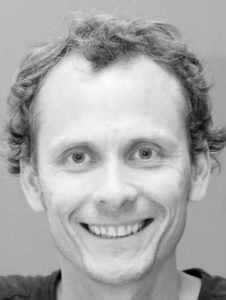Dr. ir. Koen D Reesink, PhD
Education:
BSc Electrical Engineering (EE) Fontys and MSc EE TU/e, PhD Biomedical Eng with Cardiothoracic Surgery, Post-doct Fellow Imperial College London, Assistant Prof BME 2016 onwards
Place of Employment:
CARIM School for Cardiovascular Diseases & CardioVascular Center, Maastricht University Medical Center, Maastricht, The Netherlands
Current Research or area of work:
Dr. Koen Reesink was originally trained in Electrical Engineering and has been active in biomedical research for over 20 years. His interests and specialties are vascular structure and function, ventricular-vascular hemodynamic interaction, system dynamics and signal processing. Dr. Reesink’s group has made significant and awarded contributions to quantify and interpret arterial stiffness measurements, especially in clinical settings. Dr. Reesink’s current research line ‘Constitutive and system characteristics of large arteries’ is focused on unraveling the multi-scale structure-function relations that underlie the pathophysiology of accelerated arterial stiffening. Quantitative insights into these relations are of utmost importance to conceive, develop and validate therapeutic approaches for de-stiffening arteries, in order to combat the growing epidemic of ‘old-age’ systolic hypertension and its desastrous cardiovascular and societal sequelae.
Leadership Roles:
Assistant Prof BME, coleader AS&HT, co-coordin MINDSHIFT, Compass2CVHealth, initiator&chair VNG, steering group MF, chair MF2BMC Op Exc WG.
Reason for joining ECCR:
Invitation from other members of ECCR and the multi-disciplinary approach to cardiovascular pathophysiology, complements other society memberships.
Book recommendations:
- Steps to an Ecology of Mind, Gregory Bateson 1972
- The Music of Life: Biology beyond the Genome, Denis Noble 2008
- Consciousness Explained; Daniel Dennett 1991
All three items are exemplary but accessible systems views and integrative approaches to understand human biology and behaviour.
Interesting Articles:
Humphrey JD cell-matrix interaction 2014
Reesink KD & Spronck B invited review AJP-HCP 2018


